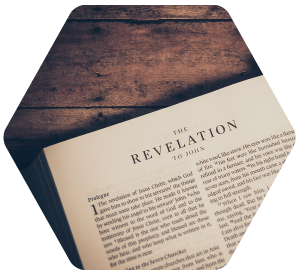B. H. Carroll Theological Institute

Revelation
With Dr. Randall Worley
Thursdays 6:30pm-8:00pm CST
Fridays 1:30am-3:00am CET
An exegetical study of Revelation designed to enable the student to understand and interpret the biblical message. Primary attention will be given to the form and content of the text itself: its background and history, distinctive literary traits, the flow of the argument, and the application of its truths in the contemporary setting.
Competencies
- To expound the meaning of biblical texts using proper methods and principles of exegesis informed by historic Christian practice and responsive to current needs
- To interpret diverse portions of the biblical canon in terms of the whole of Scripture, seeking unity between the two testaments, so that the Bible may function properly in theological reflection and worship by the church
Goals and Objectives
- Learn to read Revelation the way that its author intended it to be read by:
- Properly identifying the genre(s) of Revelation and reflecting upon the significance of this identification for how the book is understood
- Reading Revelation within its geographic, historical, cultural, social, and religious contexts
- Reading Revelation in relation to a variety of co-texts, particularly the Old Testament prophetic tradition and the intertestamental tradition of apocalyptic writings
- Develop a thorough acquaintance with the contents of Revelation by:
- Reading the book multiple times
- Noticing the ways in which the book shapes what were originally visionary experiences into a cohesive literary unit with a definite persuasive agenda
- Exploring the ways that John uses symbols in order to accomplish specific persuasive objectives and the ways that these symbols are embedded within the social context in which the book emerged
- Explore the theological significance of Revelation by:
- Exploring the book’s claims (often made in symbolic form) about God, Christ, the Spirit, the church, and other issues of theological importance
- Contrasting the vision of the eschatological future presented in Revelation 20-22 with the vision of the present that is put forward in Revelation 4-19
- Explore the contemporary relevance of Revelation for the lives of individual believers and for the health of Christian bodies (both local and global) by:
- Asking what faithfulness to Christ requires in the twenty-first century
- Contemplating the implications of John’s claims about God, Christ, and the Spirit for the claims made by contemporary political, social, and economic powers
- Exploring the ways in which present-day churches are like their predecessors in first-century Asia Minor

